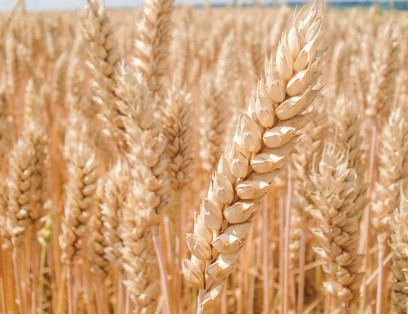France’s Pain Over Algeria’s Wheat Production Policy

A famous French website specializing in agricultural news and defending its country’s producers published an article that showed the extent of the pain affecting producers and others in the field of wheat and grains in general in France.
The article discussed Algeria’s policy of increasing the production capacity of this vital food product, which will directly impact the increase in the quantities imported from Paris.
In this context, the famous website “La France Agricole”, which specializes in agricultural news, described the new Algerian strategy for wheat cultivation as facing an insurmountable challenge related to winning the challenge of yield in quintals, claiming that the goal of achieving self-sufficiency in grains is facing an imaginary problem that only the author of the article saw, related according to him to the high costs of cultivation and production.
The website tried by all means to give the impression that the costs of grain production in Algeria are very high and not economically viable, by referring to technical cards allegedly prepared by the National Institute of Major Agricultural Crops, stating that while the yield is still below the level of 30 quintals per hectare set by the authorities, the cost of planting one hectare of wheat (soft and hard) during the 2022-2023 season, for all stages from soil preparation to harvest, is about DZD 206.000 (1475 euros), while the cost of planting one hectare of barley is DZD 157.000 (1251 euros) when using rented equipment.
However, the article published by the French website, which often conveys the concerns of French grain producers and their complaints in particular, regarding the continuous decrease in their shares in Algeria, did not mention that the heart of Algeria’s grain production strategy aims to increase the quantities produced in agricultural areas, most of which are in the desert across several southern wilayas, where the yield is usually not less than 50 hectares/quintal, and even reached 120 quintals in the city of Oued Souf during the last season.
Given these high costs, the author claims, the farmer can only achieve a yield of more than 37 quintals per hectare of soft wheat when renting equipment, and between 27 and 30 quintals per hectare when owning it, according to the purchase price set by the Professional Office of Cereals at 40 euros per quintal.
In a clear attempt to target the Algerian-Italian project to produce durum wheat, the biased article stated that the costs of producing this type in Algeria are the highest among all types of grains, with agricultural inputs (seeds, fertilizers, fungicides and herbicides) accounting for up to 75% of the total costs.
This blatant French bias comes a few days after a heated debate in the Senate, the upper house of parliament, which showed real horror at the Algerian-Italian rapprochement, especially concerning wheat and dry legume production projects in the south of the country, which was understood by French elites and circles as a direct “diminishment” of Paris’s share in the Algerian market.
During the discussion, the senator, Akli Mellouli, spoke about the Algerian-Italian rapprochement and the investments that he described as heavy within the framework of the “Mattei” plan directed at the African continent, in addition to the competition of the Americans as well.
In this regard, he said, “As I was saying today, as we see about wheat, you know that there is a Mattei plan because if we do not take into account that we are not alone in this field in Africa, there are the Americans but also the Italians who have put in place a Mattei plan with very large investments in Africa in general, and especially in Algeria.”
“They (the Italians) will take 36,000 hectares in southern Algeria to produce wheat, and thus Algeria will achieve self-sufficiency and this wheat will also go to Italy, which means that the quantities of wheat we sell will be much less (referring to France), and this is also realistic,” added Senator Akli Mellouli.
The French politician stressed that if this issue, the Algerian-Italian rapprochement in the field of wheat, is not taken into account, it will lead to further isolation of France because Paris does not only have problems with Algeria but also with other countries.
For almost 30 years of expertise in the agri markets, UkrAgroConsult has accumulated an extensive database, which became the basis of the platform AgriSupp.
It is a multi-functional online platform with market intelligence for grains and oilseeds that enables to get access to daily operational information on the Black Sea & Danube markets, analytical reports, historical data.
You are welcome to get a 7-day free demo access!!!
Write to us
Our manager will contact you soon



